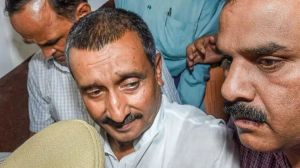Stacking up for reform
Recently, Maharashtra took an initiative to make a law against sorcery, magic and blind faith in any religious tradition, and the bill is aw...

Recently, Maharashtra took an initiative to make a law against sorcery, magic and blind faith in any religious tradition, and the bill is awaiting the governor8217;s approval. The move, though quite forward looking, has been opposed by certain religious leaders who allege it is directly aimed at the very root of their faith. All kinds of allegations are being leveled against the proposed bill, with a view to creating a stir in the minds of simple and God-fearing people who would be better off with fewer retrograde practices.
No religion is free of such outmoded and even questionable practices, and there is a real need for addressing all such practices that do not conform to the civilised form of human living. Change, we must, if that can enhance social equity and human dignity. For, there are unacceptable and even highly questionable religious practices in almost all religious traditions that require a revamp. Attempts to reform are wholly welcome.
There have been heroic efforts from visionaries to effect reforms in society by focusing on certain redundant religious and social practices. This certainly goes to show that antiquity alone need not and should not determine the validity of certain religious practices; on the contrary, it may be the very reason for bringing about a change, for with the passage of time, relevance of some institutions also get depleted. Mahatma Gandhi valiantly fought against some social evils and absurd religious practices. So also Sri Narayana Guru, Raja Ram Mohun Roy, Debendranath Tagore, Keshab Chandra Sen and many others whose eagerness to cleanse Indian society of superstitious practices can never be forgotten.
If in the name of religious practice, a person8217;s human dignity is at stake, basic rights are dishonored and freethinking is obstructed, then it is time to challenge them summarily. For true religion is meant to ennoble a person, make him conscious of his basic rights and free him to exercise his fundamental rights. If a religion promotes or even condones sorcery, witchcraft, soothsaying, denigration of women and children, then they cannot and should not be passed for religious observances. They are, at best, perversions of religion perpetuated by bigots of a forgotten era of human history. Whenever there is an attempt to reform religion in any part of the world, some sections of society make a hue and cry about it. Opposition comes, very often, not from the simple-minded believers, but almost invariably from the religious hierarchy that has its interests to safeguard. Can any right-minded person in today8217;s world, for instance, tolerate the practice of sati? Similarly, it is time that we take an objective look at the prevailing situation in our society and initiate corrective measures.
- 01
- 02
- 03
- 04
- 05































